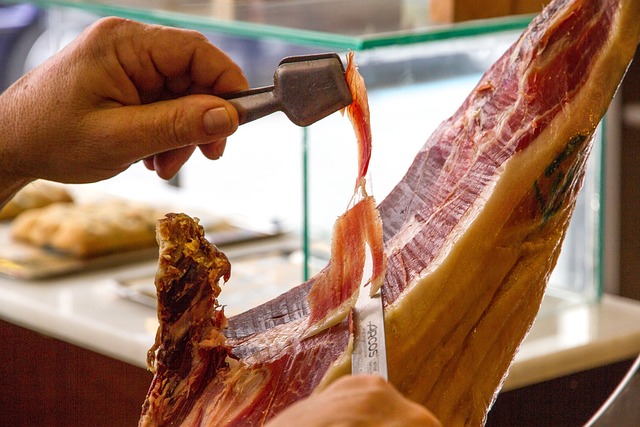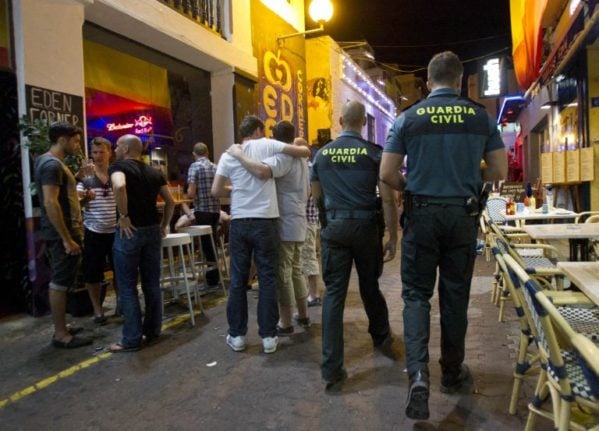Every year around 6 million cured pigs’ legs are sold in Spain, according to the country’s Association of Iberian Pigs (Asici). Jamón, whether as a tapas dish or proudly displayed as a full leg in someone’s kitchen over Christmas, is about as Spanish as it gets.
Along with tortilla de patatas (Spanish omelette) and paella, it is probably the most iconic food offered by Spanish gastronomy.
READ ALSO: The ultimate guide to buying a leg of ‘jamón’ in Spain at Christmas
But Spain’s world-renowned jamón ibérico is facing increasingly tough market conditions and now the iconic Spanish cured ham could be under threat from droughts.
In the summer of 2022, Spain was scorched by record temperatures and its reservoirs were drained. Though the water levels of Spanish reservoirs began to refill during the rainier winter months, and are already at 50.9 percent of their capacity, according to the latest data, climate change makes it likely that Spain will suffer high heat and droughts more frequently during its summers – something that could have a big impact on the jamón industry.
Know your jamones
An important point on jamón you’ll usually find either jamón serrano or ibérico, with the latter being considered of a higher standard and taste, as it’s from a Spanish breed of cerdo ibérico (Iberian pig) which eat only acorns that are rich in oleic acid (a healthy fat) and the process by which the meat is cured is more artisanal.
And acorns are where the problem comes in.
Put simply, droughts are shrinking the areas where pigs graze and reducing the number of acorns, which in turn reduces the weight of the pigs. When combined with all the other various external economic pressures, the jamón business is quickly becoming unprofitable
“The pigs lack weight and it restricts us quite a lot,” Rodrigo Cárdeno, from Explotaciones Agropecuarias Cárdeno, told Spanish news outlet RTVE. “We are talking about an animal that should be 90kg going into October and leave in January at around 150 kilos.”
READ MORE: How drought is threatening Spain’s ‘green gold’ harvest
In certain parts of Spain, farmers have been forced to increase their grazing land to be able to maintain the slaughter this season, which can often be around 3,000 acorn-fed pigs per season.
Some farms, however, have not been able to do this and have had to reduce the number of pigs as a result.
Both options hit profitability, in addition to the broader pressures on production and energy costs felt by all sectors.
“We are heading towards the ruin of the sector, expenses have equalled income and it is a disaster,” Emilio Muñoz, manager of Ilunion Ibéricos de Arzuaga, in Grandada, explained to RTVE.
As a result, experts estimate that 20 percent fewer acorn-fed pigs will be slaughtered this season than last.
Price rises
It is likely the shortage will have an impact on the price of jamón ibérico moving forward.
“This means that in four years’ time, when these acorn-fed pigs reach the market, there will be less available and it will be a scarcer product,” Alfredo Subietas, general manager of Ilunion Ibéricos Arzuaga, told the news channel.
This is a price increase that will be passed onto consumers, so if you want to enjoy the best jamón ibérico in the future, you’ll likely have to pay even more.



 Please whitelist us to continue reading.
Please whitelist us to continue reading.
Member comments